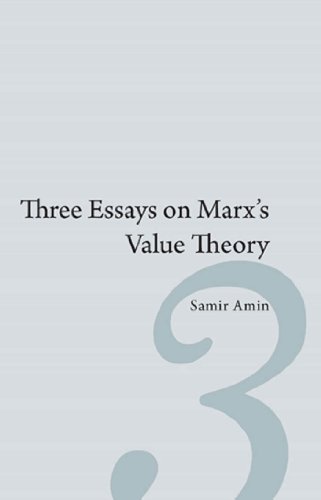 |
| Amazon link |
Scientific theories represent not only their subject matters, but also a history of our changing engagement with their domains of concern. All theories ossify and sediment as their historically-constructed forms, vocabularies and content are stranded by the ever-developing engagement of humans with the world. Social relations, and relations with the natural world, are in continual flux, mediated through ever-changing needs, technologies, conflicts and opportunities.
In the natural sciences we have an audit trail of progress, surfing the industrial dynamism of capitalism mostly. In the so-called social sciences, all 'theories' have an agenda, theorising the interests of the social groups and factions which sponsor them.
The exception was meant to be Marxism: a theory which represents the dispossessed, not any elite faction. Surely such a theory has no interest in wilful obscurantism? And when Marxism was hijacked by Stalinism to justify a newly-formed bureaucratic elite, wasn't it Marxist critics of Stalinism who most profoundly analysed the degenerate result?
But we are where we are. Marxism today, largely confined to the liberal-arts elite in academia, is mostly exegesis and dogma. Marx's curiosity and skepticism about everything has been replaced by a complacent indifference to new results in neuropsychology and genetics, combined with blindness to the inner obscurities of the Marxist corpus (value theory, the supersession of capitalism, the compatibility of extensive automation with continuing capitalist reproduction).
I am interested in value theory, because a critical foundation of Marxist theory is that only human labour creates value, and that abstract social labour is the key concept underlying the exchange process which lies at the heart of generalised commodity production, ie capitalism. This captured a particular view of observed reality in Marx's time, capitalism in its first developmental phase.
In the modern physicalist view of things, humans are effectively biochemical 'machines' - so any apparently-vitalist distinction in Marxism (only living labour can create new value) cries out for a deeper understanding, driven by the need to analyse increasingly widespread cognitive automation.
We have always understood that value is a social relationship, not a quasi-physical attribute of a commodity. Yet there are subtleties. Natural processes (wine ageing, for example, or the ripening of fruit) appear to increase value. Rents and value-creation are confusable. Workers have different concrete abilities and training so measuring abstract social value seems difficult - is it an operational concept? And finally, what will stop machines we design in the image of ourselves and pay wages to from creating new value? - Just say no to vitalism!
I was hoping Samir Amin might be able to help me out. But no: his short book is really an extended advertisement for his other books. There is a difference between understanding a theory in its own terms and being able to deploy it accurately, on the one hand .. and understanding the underlying reality so deeply and profoundly that you can assess, critique and creatively develop that theory, on the other. It's the difference between good and great.
Amin has read his Marx and internalised it. He can do exegesis even as he criticises it. Yet what he writes that is profound is not new, and what is new in his book is not at all profound.
Good is not enough: I am disappointed.
I am getting the impression that "old school" Marxists - especially those with an additional agenda - are not going to give you the theories that you want. Maybe the current generation of Marxist students, who are into technology and science, might in 10 or 20 years mature enough to write the sort of book you are looking for.
ReplyDeleteOtherwise if you want to read an exciting book on Marxism+AI+Genetics you will have to (co-)write it yourself....
The more-than-vast literature is quite a hurdle but I recall Robert Trivers' advice when proposing a paradigm change: read enough to master the extant material, understand the errors .. and then ignore it :) .
Delete